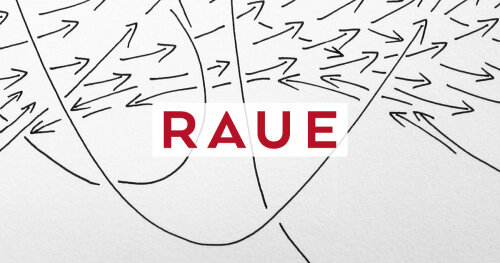Best Mortgage Lawyers in Germany
Share your needs with us, get contacted by law firms.
Free. Takes 2 min.
Free Guide to Hiring a Real Estate Lawyer
Or refine your search by selecting a city:
List of the best lawyers in Germany
About Mortgage Law in Germany
Mortgage law in Germany is a structured system that governs the relationship between lenders and borrowers in the context of property acquisition. Mortgages, known as "Hypotheken" in German, provide a means for individuals to finance property purchases by using the property itself as security. The statutory framework for mortgages in Germany is primarily covered under the Civil Code (Bürgerliches Gesetzbuch - BGB) and various specific regulations. The German system ensures that both parties' rights and obligations are clearly outlined and enforced, promoting a stable legal environment for real estate transactions.
Why You May Need a Lawyer
Engaging a legal expert when dealing with mortgages in Germany can be invaluable in several scenarios:
- Complex Agreements: Mortgage contracts can be intricate, with numerous clauses that might be difficult to understand without professional advice.
- Disputes: Disagreements between lenders and borrowers can occur, whether it relates to payment schedules, interest rates, or other conditions.
- Foreclosure Issues: Facing foreclosure can be daunting, and legal advice can be crucial to navigate this process and explore possible alternatives or defenses.
- Tax Implications: Mortgages have tax consequences, and legal guidance can help in understanding deductions or liabilities.
- Cross-border Transactions: If the transaction involves parties or properties in different countries, legal advice can help manage jurisdictional challenges.
Local Laws Overview
Key aspects of local mortgage-related laws in Germany include:
- Security Interests: German law recognizes two main types of real estate security: the mortgage (Hypothek) and the land charge (Grundschuld). The land charge is more commonly used as it offers greater flexibility.
- Registration: Any lien or charge over a property must be registered in the Land Register (Grundbuch) to be legally effective.
- Foreclosure Procedures: Mortgagees may enforce their claims through foreclosure (Zwangsversteigerung) in court if the borrower defaults.
- Consumer Protection: German law includes several consumer protection measures, such as mandatory disclosure statements that must be provided to consumers.
Frequently Asked Questions
What is the difference between a mortgage (Hypothek) and a land charge (Grundschuld) in Germany?
The primary difference is that a mortgage is tied directly to the secured debt, while a land charge is independent of the underlying obligation, providing more flexibility in terms of assigning or transferring the security interest.
How is the mortgage interest rate determined in Germany?
Interest rates are influenced by several factors, including the European Central Bank's base rate, the lender's terms, and the borrower’s creditworthiness. Fixed and variable rate options are available.
What is the typical duration of a mortgage in Germany?
Mortgages in Germany often have a term of between 5 and 30 years, with many borrowers opting for fixed interest rates for a portion of the mortgage term, commonly 10 or 15 years.
Can foreigners obtain mortgages in Germany?
Yes, foreigners can secure mortgages in Germany; however, they might face more stringent requirements compared to residents, such as higher equity contributions or thorough credit assessments.
What happens if I miss a mortgage payment?
Missing a mortgage payment may result in penalties and fees. If the situation persists, it could lead to debt collection efforts and potential foreclosure. It's crucial to communicate with your lender as soon as possible to explore options.
Is it possible to get a mortgage for a second or holiday home in Germany?
Yes, securing a mortgage for purchasing a second or vacation property in Germany is possible, although the terms and conditions may vary based on the individual's financial situation and property location.
What are the typical costs associated with obtaining a mortgage in Germany?
In addition to the loan's interest costs, there are several other fees, including notary fees, land registration fees, and potentially a handling fee from the lender. Total costs can range from 5% to 15% of the purchase price.
How can I repay my mortgage early in Germany?
While prepayment is allowed, it typically requires paying a prepayment penalty, known as "Vorfälligkeitsentschädigung." The amount is regulated to protect borrowers.
What role does a notary play in the German mortgage process?
A notary is an impartial public official required by law to oversee the signing of real estate contracts and the mortgage registration process, ensuring legal compliance and the protection of both parties' rights.
Are there any incentives or government programs to support mortgage borrowers in Germany?
Germany offers several programs to assist homebuyers, such as Baukindergeld, which provides subsidies to families with children, and energy-efficient mortgages, which offer lower rates for eco-friendly buildings.
Additional Resources
Consider exploring the following resources for further information and assistance:
- Federal Financial Supervisory Authority (BaFin): Offers general financial services advice and consumer protection information.
- German Consumer Advice Centers (Verbraucherzentrale): Provides counseling and information on consumer rights, including mortgage-related issues.
- Deutsche Notarkammer: The official website for notaries in Germany, offering guidance on legal formalities for property transactions.
Next Steps
If you need legal assistance in dealing with mortgage issues in Germany, consider the following steps:
- Identify qualified legal professionals specializing in real estate or finance law.
- Schedule consultations to discuss your situation and explore potential legal strategies.
- Gather and organize all relevant documentation, including mortgage contracts, correspondence, and financial statements.
- Stay informed and proactive in your dealings with lenders or legal representatives.
Lawzana helps you find the best lawyers and law firms in Germany through a curated and pre-screened list of qualified legal professionals. Our platform offers rankings and detailed profiles of attorneys and law firms, allowing you to compare based on practice areas, including Mortgage, experience, and client feedback.
Each profile includes a description of the firm's areas of practice, client reviews, team members and partners, year of establishment, spoken languages, office locations, contact information, social media presence, and any published articles or resources. Most firms on our platform speak English and are experienced in both local and international legal matters.
Get a quote from top-rated law firms in Germany — quickly, securely, and without unnecessary hassle.
Disclaimer:
The information provided on this page is for general informational purposes only and does not constitute legal advice. While we strive to ensure the accuracy and relevance of the content, legal information may change over time, and interpretations of the law can vary. You should always consult with a qualified legal professional for advice specific to your situation.
We disclaim all liability for actions taken or not taken based on the content of this page. If you believe any information is incorrect or outdated, please contact us, and we will review and update it where appropriate.
Browse mortgage law firms by city in Germany
Refine your search by selecting a city.















